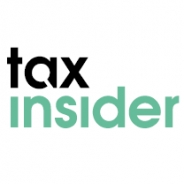
Written by Jennifer Adams for Tax Insider
For tax purposes the operation of a furnished holiday let (FHL) is not a business, rather, it is deemed to be an income investment. Despite this, FHL are treated as trading with taxable income being calculated using the normal rules and as such FHL have some tax advantages over other types of lettings so long as the FHL meets certain qualifying conditions.
The reliefs available under the special FHL rules which are not available to other rental businesses are:
- plant and machinery capital allowances for items such as furniture, equipment and fixtures
- the same capital gains tax reliefs as for traders namely, business asset rollover relief, entrepreneurs’ relief, relief for gifts of business assets and relief for loans to traders
In order to qualify as an FHL (as opposed to the mere letting of furnished accommodation) the property must satisfy the following conditions:
- It must be suitably furnished to enable the property to be occupied as holiday accommodation.
- It should be located within the European Economic Area being let on a commercial basis with a view to making a profit.
- The property should be available for commercial letting to members of the public for at least 210 days (30 weeks) in any one tax year and actually be let for at least 105 days (15 weeks) of the tax year.
- Continuous occupation must not exceed 155 days; this restriction being designed to allow a longer let out of season. The property must not be occupied for more than 31 days by the same person in any period of 7 months.
Additional points:
- If the property qualified as an FHL last year but failed to do so this year because the actual occupation days were too low, then an election can be made to continue to treat the property as a FHL this year and potentially next year ('termed a period of grace')
- where the FHL business comprises multiple properties the qualifying days rules will be averaged between the properties so that all will fall within (or without) the FHL category.
- Rent must be charged at a market rate.
- Profit or losses are calculated separately from any other rental property with losses only being offset against income of the same FHL business.
- The legislation for corporation tax purposes is virtually identical to the conditions required for income tax purposes
- A property that is owner-occupied for part of the year cannot be regarded as 'available for letting' however an owner who moves out of his home during the holiday season and returns to live there when the season is over will be allowed.
Read more here: https://www.gov.uk/government/publications/furnished-holiday-lettings-hs253-self-assessment-helpsheet



Please register or log in to add comments.
There are not comments added